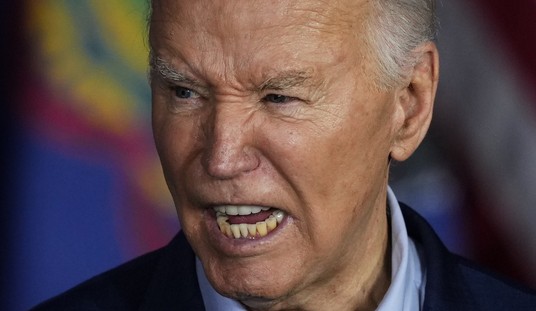FCC chairman Julius Genachowski has the three votes needed to approve his “open Internet” proposal that will expand FCC authority to the private networks that form its backbone. Despite calls from both conservatives opposed to FCC jurisdiction in this area and Net Neutrality advocates angry that Genachowski watered down their own proposals, the other two Democratic appointees will vote in support of the proposal, CBS reports:
New rules aimed at prohibiting broadband providers from becoming gatekeepers of Internet traffic now have just enough votes to pass the Federal Communications Commission on Tuesday.
The rules would prohibit phone and cable companies from abusing their control over broadband connections to discriminate against rival content or services, such as Internet phone calls or online video, or play favorites with Web traffic.
FCC Chairman Julius Genachowski now has the three votes needed for approval, despite firm opposition from the two Republicans on the five-member commission. Genachowski’s two fellow Democrats said Monday they will vote for the rules, even though they consider them too weak.
Mitch McConnell warns Genachowski and the Obama administration that that fight isn’t over in a video released last night:
I’m Senator Mitch McConnell, the Republican Leader in the U.S. Senate.
The Internet is a platform for innovation. Every day entrepreneurs, including many in Kentucky, offer new services to millions of Americans, like yourself, who use the internet on a daily basis – and are using it right now to watch this video. Our economy has benefited from the rapid growth of the Internet, and that’s due in large part to the lack of government involvement.
But that could soon change. The Obama Administration, which has already nationalized health care, the auto industry, insurance companies, banks and student loans, now wants to brazenly control how Americans use the Internet by establishing federal regulations on its usage. This would harm investment, stifle innovation and lead to job losses.
I, along with several of my colleagues, have urged the FCC Chairman to abandon this flawed approach. But we need your help. Please share this video with your friends on the Internet.
The Internet is a valuable resource and it must be left alone.
The new rules will come under scrutiny almost immediately in the upcoming Congress. Even the Democratic-run Congress objected to Genachowski’s first attempt at claiming jurisdiction over the Internet, as did the courts. A Republican-run House will look even more skeptically at expanded claims of jurisdiction by an agency, especially when Congress has previously refused to grant that jurisdiction.
The principle is still the same. Genachowski’s approach equates the Internet to telephone service and the 1934 Communications Act that birthed the FCC and granted it jurisdiction. However, that was a state-approved private monopoly that required regulation in the absence of competition, which the government outlawed prior to breaking up AT&T. The Internet has plenty of competition, especially for end users, who can either get service over the hard wire of their local telephone service, a cable-TV network, or wireless access. In that competitive environment, the FCC has no business dictating the management of private networks.
The proposal may pass today, but the battle will start on January 5th.
Update: The next move may come in court, according to National Journal’s Tech Daily Dose:
Multiple sources have told National Journal that Verizon, the nation’s second largest telecommunications carrier, may seek to overturn the historic open Internet rules to be approved by the Federal Communications Commission Tuesday morning. Sources said the option is on the table, but cautioned that no final decision has been made. The company will review the details of the new “network neutrality” rules set for adoption by the agency’s three Democratic regulators to gauge its next move.
That would allow another court to reiterate what the FCC was told in April, which is that they have exceeded their mandate by imposing themselves on private networks in a competitive market without Congressional approval to do so.







Join the conversation as a VIP Member